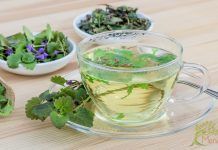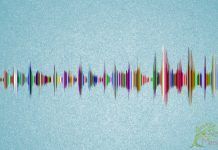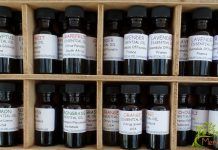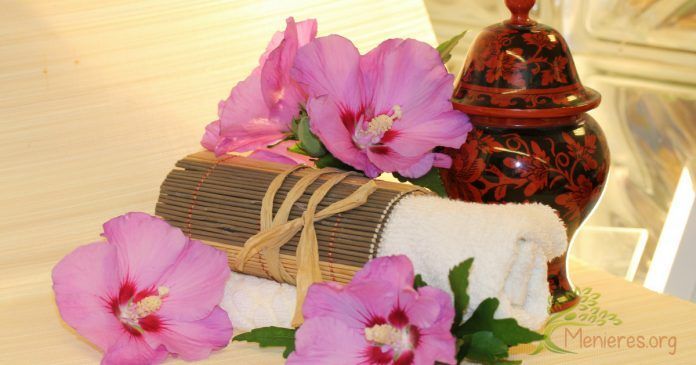
There are chronic, incurable ailments in this world which leave even the most experienced doctors scratching their head: Meniere’s Disease is one of them. Meniere’s is a rare condition affecting about .2% of the population. The rarity of the condition is only one part of the issue for physicians studying Meniere’s, however. There’s also the fact Meniere’s Disease can begin at any time in a person’s life. Each person’s symptoms can be different from another sufferer’s. Sometimes the condition just disappears for a few lucky folks. So, it’s not surprising to discover research on Meniere’s expanding to include alternative treatments for Meniere’s Disease, including Ayurvedic treatment modalities.
What is Meniere’s Disease and its Symptoms?

The short view of Meniere’s is it is an inner ear disorder. It can lead to permanent hearing loss over the course of time. The disease has a whole host of symptoms which can occur simultaneously or in various combinations of two or more. The main clue someone may have Meniere’s is repetitious bouts of vertigo. When vertigo occurs, it isn’t just being dizzy for a moment when you stand up. Rather, a Meniere’s vertigo attack usually lasts 20 minutes or more, and in some instances for a full day or longer.
Other symptoms include:
- Blurred vision or unusual eye movements: These happen during a Meniere’s episode.
- Ear stuffiness: This is like when you are on an airplane and want to pop your ears. The occurrence usually only affects one ear – the same ear one experiences hearing loss and/or tinnitus.
- Headaches: Severe headaches or migraines often accompany or presage Meniere’s symptoms.
- Hearing loss: The amount of loss varies in severity. It may be temporary or become progressive over the course of the disease.
- Nausea, sweating and vomiting: All of the latter symptoms are the result of the dizziness one experiences.
- Tinnitus: Also known as ringing in the ear. People describe this sound as a buzz, whistle, hiss, roar, siren, static, or dial tone.
- Trembling and increased heart rate: This constellation of symptoms can be part of a Meniere’s attack and the anxiety the condition causes for many people.
In between Meniere’s events, a person can appear and feel perfectly normal with no symptoms whatsoever; The random onset of Meniere’s symptoms is one reason why doctors misdiagnose the disease as an inner ear infection or other similar disorder.
What Causes the Meniere’s Disease?
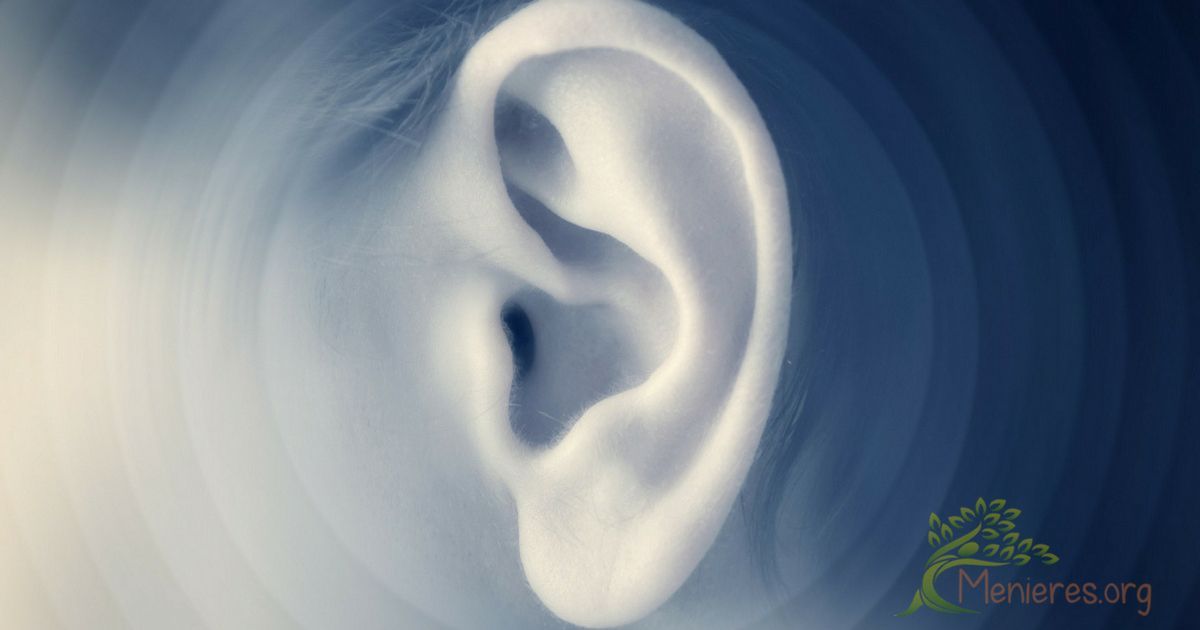
The exact cause of Meniere’s Disease has proven as elusive as its diagnosis and treatment. More than likely there are several factors at work here. We know people with Meniere’s have inadequate levels of inner ear fluid. There is also a chance an abnormal autoimmune response contributes to Meniere’s. Genetic predisposition is also a possibility.
There are some factors in a person’s medical history that may trigger Meniere’s or symptoms mirroring the disorder. These include:
- Allergies
- Circulation problems
- Head or neck injuries
- Migraines
- Syphilis
- Viral infections
The above-mentioned symptoms are those for which some people address with Ayurvedic treatments. Such treatments can prove beneficial when looking to alleviate or minimize Meniere’s episodes and the severity of symptoms one experiences.
Meniere’s Disease Complications
Meniere’s is not a simple disorder. If your doctor diagnoses you with Meniere’s, you need to know there is a lot on the line. Take your condition and potential treatments seriously. Those with Meniere’s over a long period often lose their hearing in one or both ears completely. Additionally, people experience bouts of depression and anxiety from the ongoing discomfort and safety issue Meniere’s vertigo presents.
Ayurveda and Alternative Treatments for Meniere’s Disease
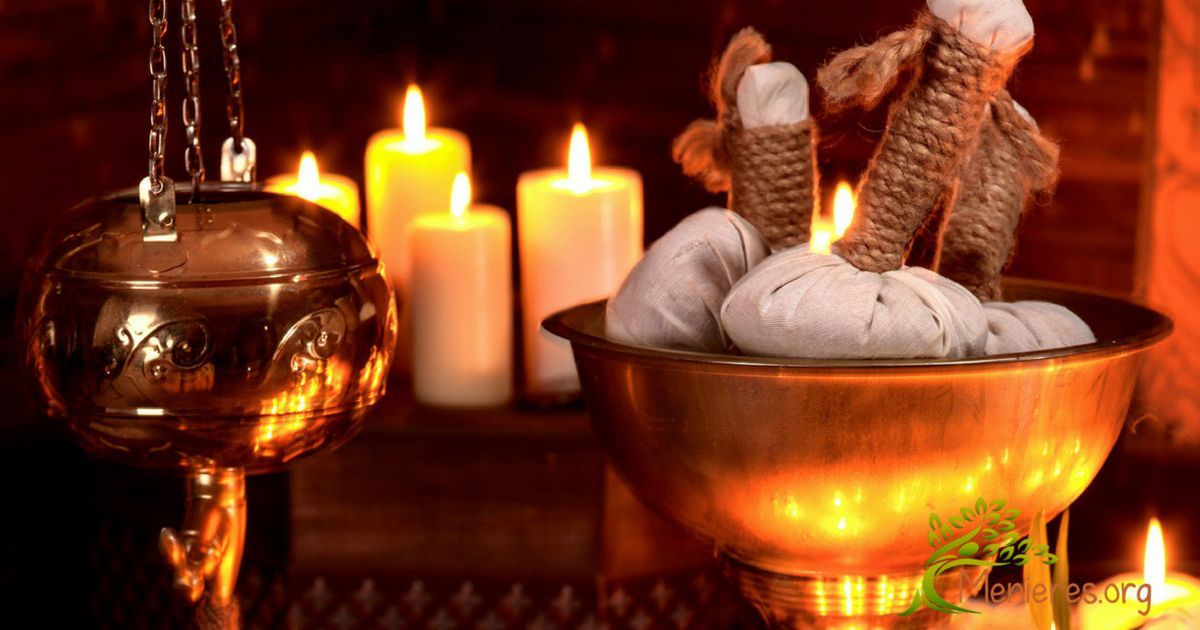
Basic theories behind Ayurvedic therapy suggest our bodies accumulate toxins over time. The accumulation is greater in people who have poor health habits. In turn, the toxins, throw bodily fluids out of balance. That imbalance manifests in a variety of ways including Meniere’s Disease onset.
According to Ayurvedic theory, the cause of Meniere’s stems from an imbalanced vata dosha. Vata regulates movement in the body including blood circulation, waste elimination, and breathing. When vata dosha is out of balance, all of these movements may increase, decrease, or become irregular. The suggested ayurvedic medicine for a Meniere’s Disease imbalance in vata dosha is Panchakarma.
The Basics of Panchakarma Therapy for Meniere’s Disease Relief
Panchakarma Therapy is a method of detoxifying the body involving a combination of holistic procedures. The goal of such therapy is balancing the doshas in a person’s body. Doshas are energies which regulate physiological activity. Each dosha has defining characteristics, a specific physical location, and a corresponding chakra. Overall, Panchakarma Therapy focuses on:
- Stress curtailment
- Cleansing
- Anxiety regulation
- Symptom reduction
The treatments begin with oil baths (to draw out toxins) and massages for creating a calming effect. It’s important to know, however, one person’s Panchakarma treatment will be different than another’s. Personalization is essential and based on a person’s age, the type of imbalance(s) present, and general immunity levels.
Additionally, the person undergoing therapy must make and maintain certain lifestyle changes to keep things in balance. Exercise, sleep hygiene, medicated milk, and special meat soup recipes help in alleviating Meniere’s symptoms. Most medical practitioners collaborate with a Panchakarma expert for overall care.
Ayurvedic Supplements for Meniere’s
Ayurvedic therapies often work hand-in-hand with specific supplements. Some of the supplements experts recommend include:
- Ashwagandha Capsules: An Ayurvedic formula made from Indian ginseng. Ashwagandha calms the nervous system, making it an excellent holistic treatment for Meniere’s patients.
- Brahmi Capsules: Brahmi is an herb which is also called Bacopa and Water Hyssop. Native to India, the herb has shown exceptional results for easing mental weariness. For the Meniere’s patient, it also may decrease the number of vertigo episodes and minimize ear pressure sensations.
- Memory Herb Blend: A supplement in capsule form containing a mix of Vacha, Mulethi, Shankhpushpi, and Brahmi. The ingredients in the blend promote brain health and offer relief from the dizzy spells, tinnitus, and ear pressure those with Meniere’s experience. Some find the supplement increases the time between vertigo episodes as well.
The Vertigo Equation
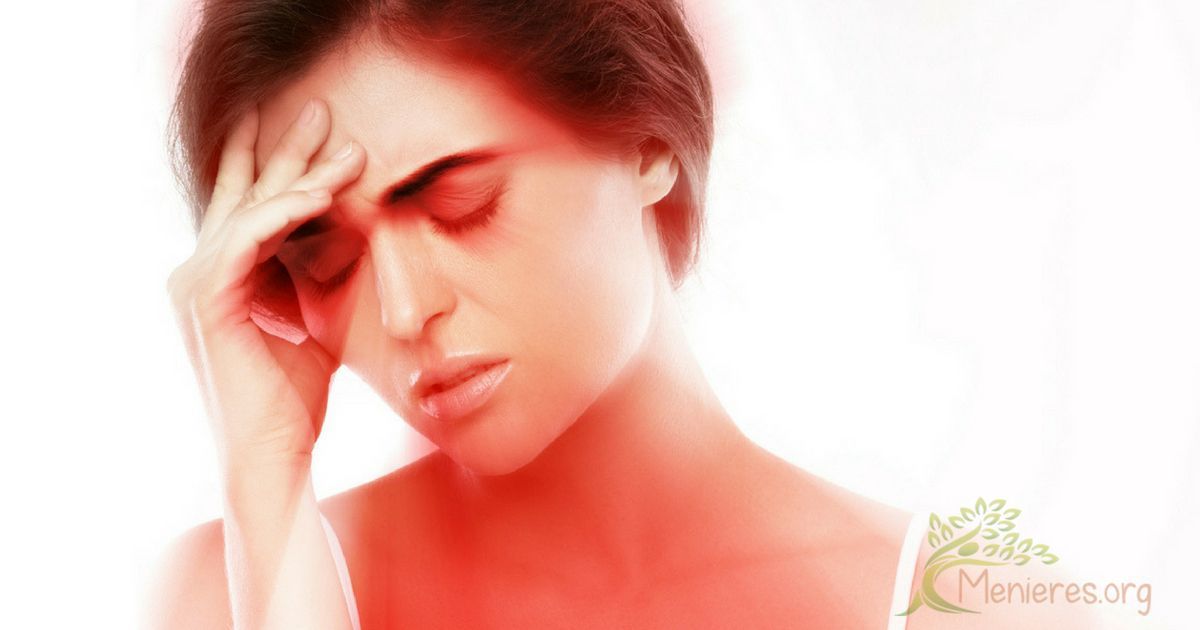
Ayurveda has specific herbs for targeting vertigo, which is the main complaint among Meniere’s patients. Gingko, by far, is the most highly regarded supplement. Gingko reduces many circulatory problems and improves oxygen flow. It offers the additional benefit of decreasing or eliminating tinnitus.
Other herbs Ayurvedic experts recommend include Vacha tree root; Guduchi Kashaya as a morning tonic, Triphala, Yogendra ras, etc. It is always best to consult an Ayurvedic expert before trying any of these treatments, as well as consulting with the physician tracking your Meniere’s Disease.
Among Ayurvedic home remedies for vertigo symptoms, we find sesame oil mixed with cardamom and cinnamon as a topical treatment. Another alternative includes ground almonds, ghee, cloves, and milk one consumes over several days.
Lifestyle Helps and Hints:
As with Western medicine, Ayurveda treatment methods include several good tips for those with Meniere’s. These include:
- Maintaining a proper hydration.
- Maintaining a healthy diet.
- Adding celery juice to your beverages to combat dizzy spells.
- Avoiding junk food, alcohol, caffeine, and salt.
- Smoking cessation.
- Learning breathing exercises to steady yourself during episodes.
- Including yoga and meditation in your care plan.
- Resting properly.
- Avoiding stress as much as possible.
Ayurvedic Approaches to Nausea
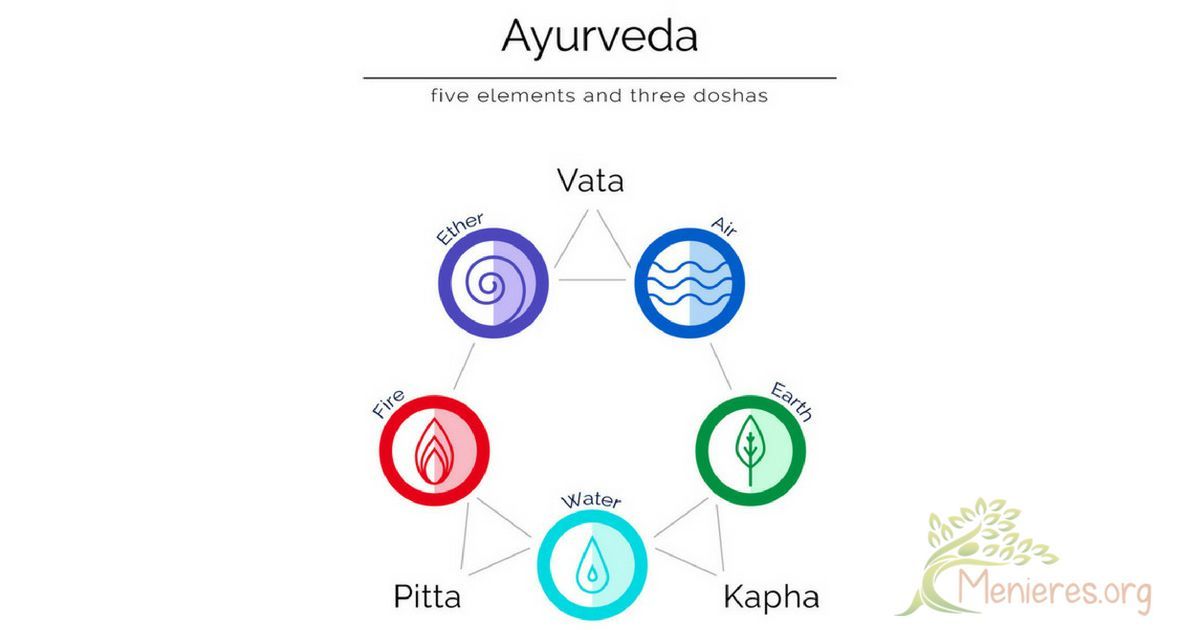
Nausea and vomiting often come with Meniere’s vertigo. Some Ayurvedic home remedies experts recommend for easing stomach upset include:
- Apple Cider Vinegar: 1 tsp with 1 tsp honey in 8 ounces of water.
- Chamomile Tea: Consuming the beverage between meals twice daily.
- Diet Augmentation: Add any of the following to your regular menu: Nutmeg, Fennel, Chamomile, Lemon zest, Mint, Cloves, Cinnamon, Ginger Root, or Honey Dew Melon.
- Ginger Tea or Capsule: Ginger naturally soothes the lining of your stomach and aids digestion. Ginger also supports healthy liver function.
- Golden Seal Tea or Tablet: Besides helping your digestion, Golden seal soothes the stomach and liver.
- Lemon Juice: Consuming the beverage with sugar and honey or drinking mango juice.
- Lime Juice: Consuming the beverage with a pinch of honey (fresh fruit preferred).
- Peppermint Tea: Peppermint tea relieves digestive spasms, helping offset the need to vomit.
- Pickle Juice: Yes, really!
- Rice Water: Strain and drink.
- Water: Drinking as much water as possible is just a good idea for general well-being, but it’s also excellent for managing Meniere’s-related nausea.
Tinnitus, Meniere’s, and Ayurvedic Treatments
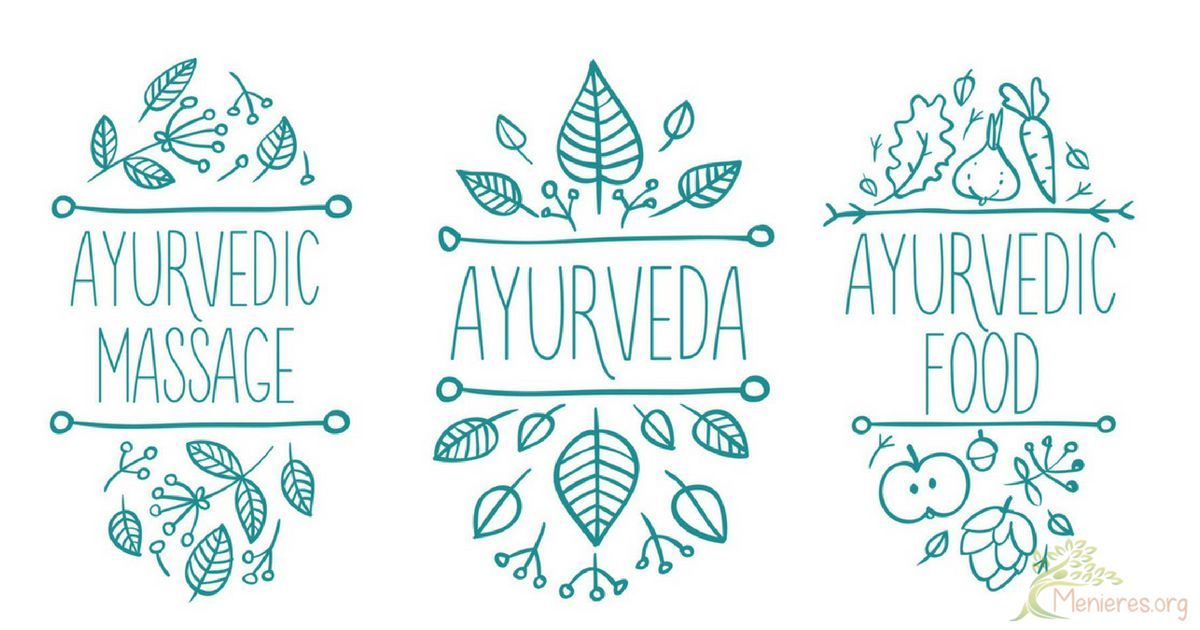
Along with ongoing bouts of vertigo many people with Meniere’s have constant ringing in their ear to the point of distraction. While some medications, ear infections, and hormonal imbalances can set off tinnitus, it would appear issues in the inner ear are the culprits for Meniere’s. Common Western approaches to ear ringing include the use of white noise generators and biofeedback. So, what about Ayurveda?
Like classic Meniere’s, Ayurveda traces tinnitus to an imbalance in the Vata, which impacts both air and sound. It’s not surprising the ears are where this asymmetry often manifests. There are some pretty straightforward bits of advice for combating this problem, including:
- Consistency in Eating: Three sit-down meals a day. Avoid sugars and processed foods.
- Meditate: 10-20 minutes a day.
- Massage: Give yourself an oil massage (Sesame oil is fine) beginning with your head, face, ears, and neck. Move to your arms and hands then your chest, abdomen, back (where reachable), legs, and lastly, your feet.
- Garlic Oil: A few warm drops in each ear daily before bed. Close your ear flaps and massage your ears for one minute each. Sesame oil is an alternative. Gently clean out your ears after 10 minutes.
- Breathing Exercises: Every day take a nice walk and breathe deeply in and out through your nose for about 20 minutes.
- Dietary Changes: Reduce bitter, dry foods. Increase warm or hot drinks. Add nuts, cinnamon, cardamom, ginger and cloves into your recipes.
- Drink Tea: Try fenugreek, comfrey, or chamomile tea.
- Reduce Sedentary Behaviors: Decrease the amount of time sitting in front of a computer.
- Keep Warm: Avoid excessive cold weather and winds.
- Protect Your Ears: Avoid exposure to loud noise and high frequency sounds.
Summing it All Up
Meniere’s Disease is complex. There are a variety of treatments that you can try. The efficacy of a treatment depends on your body and where you are in terms of Meniere’s Disease progression.
Typically, there’s no reason you cannot try alternative approaches like using Ayurvedic Therapy for Meniere’s Disease. Just be judicious. Talk to your primary physician about those things interesting you before seeking a certified Ayurvedic practitioner near you.

